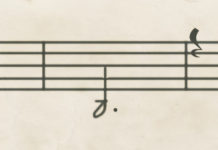Terrace House: Boys and Girls Meet in The City is a two-season series streaming on Netflix that offers a premise altering twist on the tried-and-true reality TV formula; the cast is entirely Japanese, or Japanese-speaking. Strangers thrown together to live in a luxurious house are observed in their daily lives as a panel of judges watch and critique their behaviour. Its spin-off series Aloha State, released Jan. 25, applies the same concept with new cast members on the other side of the world, in a Hawaiian villa.
This is where things become slightly complicated, for both the show’s viewers and producers.
While taking the viewer through “unscripted” instances of roommate drama and romantic beach trips, a clash of cultures takes place; the six cast members (Naomi, Avian, Lauren, Yusuke, Yuya, and Eric) seem to live in a bubble, instead of being naturally observed in their lives. All conversations in the house are Japanese, as is any written communication, despite being drowned out by surfer-bro American music.
Aloha State seems obsessed with its new setting, featuring many scenes set in markets or on coastlines, despite how jarring it is to cut to an entirely American-English culture. Lauren, Avian, and Eric are Americans themselves, and often lapse into conversations with each other in English, even in the house.
I can only ask so much of reality television in terms of believable setting and narrative, but the setup and its occupants seem like aliens in an otherwise uniform world. The show is out of place in more ways than one, and not aided by the talking-head judges that might make more of an impression on the viewer if they were notable outside of Japan.
The fun the show demands becomes genuine at times, as the playful cast go through all of the twists and turns demanded of reality TV; Lauren, the quiet artist/model and Yusuke, the charmingly innocent alternative musician are shown the be the series’ main characters and are set up in a romance plot, naturally. Despite an overriding sense of being manufactured, Aloha State’s dishonesty is offset at times by the cuteness of its cast and their cringe inspiring social awkwardness.
Terrace House: Aloha State brings together a surprisingly entertaining selection of puppets to watch dance for the viewer’s amusement, but overall cannot hide how transparently forced the situation is. In its run of eight episodes, it feels like a Japanese show made for Americans, with Americans in America, while speaking Japanese. If that was hard to understand, then you have a sense of what awaits.
































